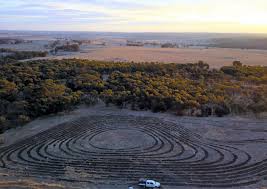
Japanese conglomerate Mitsubishi Corporation has taken a 40% stake, at an undisclosed value, in Australian Integrated Carbon (AI Carbon) one of Australia’s largest developers of nature-based carbon credits projects.
Announcing the deal, Mitsubishi said: “This investment falls in step with our sustainable objectives, which includes transitioning to a low-carbon society”.
According to AI Carbon, Mitsubishi decided to invest in Australia after researching the international carbon credits market. Mitsubishi identified Australia’s expansive landscapes as offering significant potential to generate carbon credits. This, combined with a recognised government-backed carbon market, underpinned its confidence in making the investment.
AI Carbon was established in 2016 by a small team of local carbon market pioneers led by chief executive Adam Townley, who had previously worked in European carbon markets. The venture was backed by a few external individual investors.
The shareholder base was reorganised last year with additional people with relevant expertise taking stakes, but the company remains largely held by the management team.
Townley said Australian institutional investors had remained sceptical of the concept of a carbon market until recently despite the Australian legislative structure being recognised internationally as a leading model and Australia having the scale and topography highly suitable for “carbon farming”.
“Carbon farming” was, he said, a misnomer in Australia. In many instances, Australian landholders were able to create the potential to generate returns from carbon credits simply by de-stocking land and allowing it to return to its natural state. A substantial flow of carbon credits could then be monetised through the federal government’s Carbon Farming Initiative.
AI Carbon partners with landholders to develop specific projects. The company secured the largest portion of contracts in the federal government’s last two Emission Reduction Fund auctions, most recently, in September 2020, when it gained contracts for it to sequester two million tonnes of CO2. The projects in this auction were in Western Australia.
According to AI Carbon, the option style contracts effectively establish a floor price for its contracting which helps it de-risk projects to ensure they will be profitable.
AI Carbon expects Mitsubishi Corporation’s investment to enable it to develop projects generating up to an extra 100 million carbon credits (ACCUs).
Since its last purchase at around $16 each, AI Carbon’s ACCUs have increased in value by more than 25% to around $21 but still lag the value of carbon credits in European markets, Townley said.
He said this indicated the potential growth in value of carbon credits in the future, both for landholders and investors. As natural vegetation re-grew, yields would increase, gradually at first, then accelerate, eventually reach a peak and then diminish slowly. This made it possible to accurately predict yield curves over many years.
He said Mitsubishi’s investment had provided a significant opportunity to join forces with a global player to originate projects in both the Australian and in international carbon markets.
Townley believes it is inevitable that secondary markets for Australian carbon credits will evolve but expects it to be a slow process, starting with institutional investors testing the market but would eventually also include retail investors looking for long-term predictable returns.
